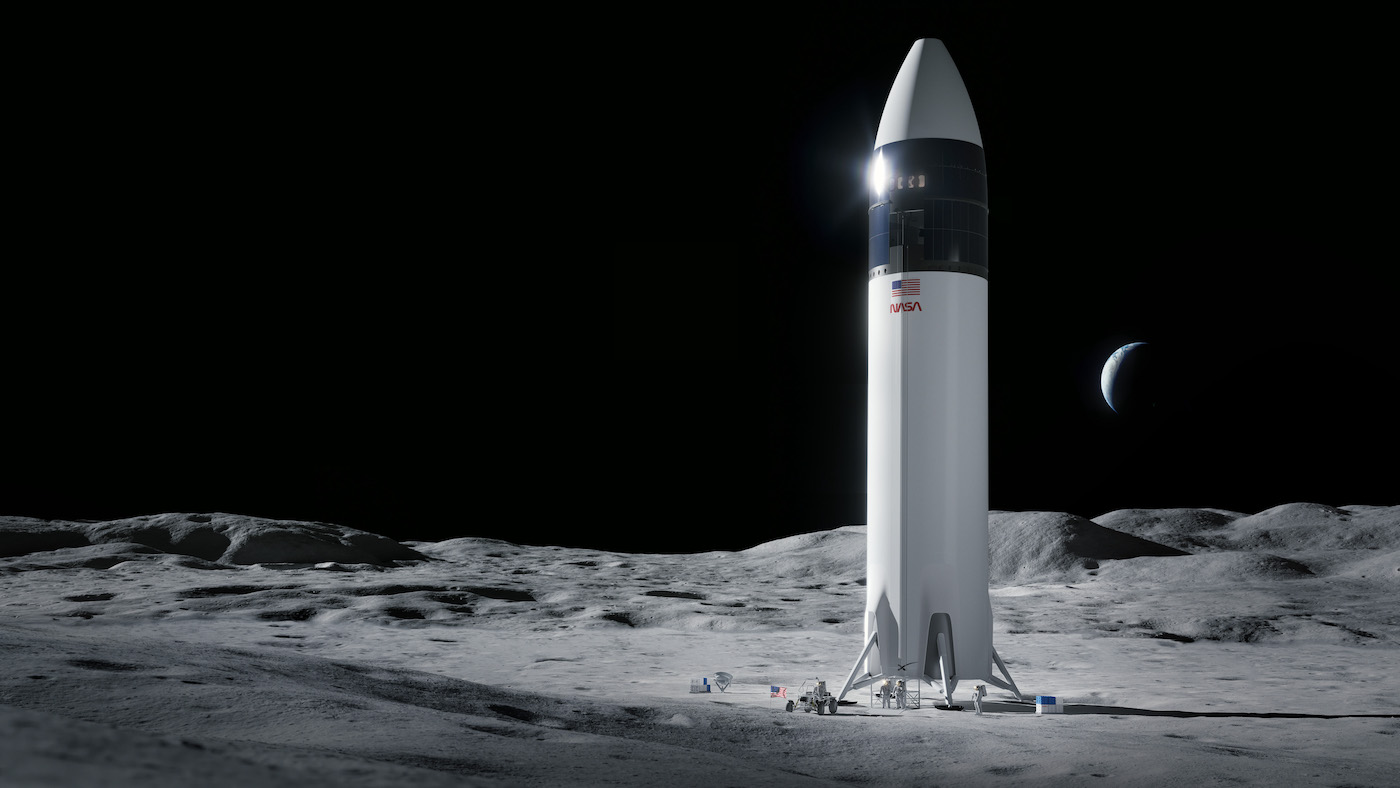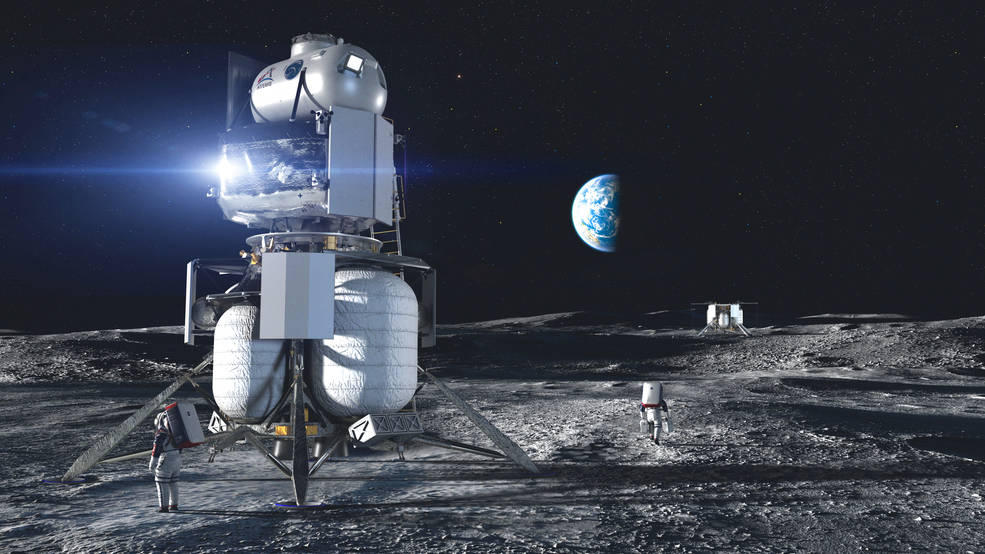STORY WRITTEN FOR CBS NEWS & USED WITH PERMISSION

The Government Accountability Office ruled Friday that NASA did not violate procurement law or regulations when it awarded a single $2.9 billion moon lander contract to SpaceX, denying appeals from competitors Dynetics, a Leidos company, and Blue Origin, owned by Amazon-founder Jeff Bezos.
NASA managers initially hoped to award two moon lander contracts, but “down selected” to a single provider — SpaceX — in April based on current and projected funding levels from Congress.
Blue Origin and Dynetics protested the award, claiming NASA was required to make more than one award given the announcement’s stated goal and that the space agency should have given them an opportunity to adjust their bids when it became clear funding was not available to pay for more than one proposal.
“In denying the protests, GAO first concluded that NASA did not violate procurement law or regulation when it decided to make only one award,” the government said in a news release. “NASA’s announcement provided that the number of awards the agency would make was subject to the amount of funding available for the program.”
In addition, the GAO wrote, “the announcement reserved the right to make multiple awards, a single award, or no award at all. In reaching its award decision, NASA concluded that it only had sufficient funding for one contract award. GAO further concluded there was no requirement for NASA to engage in discussions, amend, or cancel the announcement as a result of the amount of funding available for the program.”
As a result, “GAO denied the protest arguments that NASA acted improperly in making a single award to SpaceX.”
In an unprecedented development Monday, Bezos, in a letter to NASA Administrator Bill Nelson, offered to forego $2 billion in payments for development of an alternative lunar lander for the Artemis moon program, throwing in a company-funded test flight and in-house coverage of any cost overruns in an amended fixed-price contract.
In short, Bezos, possibly the world’s richest man, made what he presumably thinks is an offer Nelson can’t refuse.
“I am honored to offer these contributions and am grateful to be in a financial position to be able to do so,” he wrote. “NASA veered from its original dual-source acquisition strategy due to perceived near-term budgetary issues, and this offer removes that obstacle.”

A NASA spokeswoman told CBS News in an email earlier this week that the agency “will not provide comment in response to the letter in order to maintain the integrity of the ongoing procurement process and GAO’s adjudication of this matter.”
Nelson, asked about the letter and the protests during interviews Thursday, repeated that he could not comment on either until after the GAO submitted its findings, which had been expected Monday.
“Under the law, the policies and procedures of the GAO protest, we are mute until that decision is made,” he said.
Presumably, NASA will have a response of some sort soon.
Bezos said in his letter that NASA’s decision “veered from the Agency’s oft-stated procurement strategy,”
“Instead of investing in two competing lunar landers as originally intended, the Agency chose to confer a multi-year, multi-billion-dollar head start to SpaceX,” he wrote. “That decision broke the mold of NASA’s successful commercial space programs by putting an end to meaningful competition for years to come.”
Instead of that single-source approach, he continued, “NASA should embrace its original strategy of competition.”
“Without competition, a short time into the contract, NASA will find itself with limited options as it attempts to negotiate missed deadlines, design changes and cost overruns. Without competition, NASA’s short-term and long-term lunar ambitions will be delayed, will ultimately cost more, and won’t serve the national interest.”
Bezos urged NASA to reconsider, making three unprecedented offers:
1. Blue Origin will waive all payments up to $2 billion over the current and next two fiscal years to get the program “back on track right now,” providing “time for government appropriation actions to catch up.”
2. Blue Origin will launch the descent stage of its lander into Earth orbit for a bonus test flight at no cost to NASA. This is in addition to an already-planned unpiloted lunar test flight.
3. Blue Origin will accept a firm, fixed-price contract for the HLS work and “cover any system development cost overruns, and shield NASA from partner cost escalation concerns.”
“We have seen that there is strong, bi-partisan Congressional support for a second lander and for the Artemis Program in general,” Bezos wrote. “Along with that support, we believe this offer provides a strong foundation, both technically and fiscally, for the return of Americans to the Moon – this time to stay.”
In April 2020, NASA awarded nearly $1 billion to SpaceX, Blue Origin’s National Team and Dynetics and its partner, Sierra Nevada, for a design competition to come up with affordable, commercial lunar landers.
NASA managers originally hoped to award follow-on HLS contracts to two of the companies to encourage competition and protect against the possibility of major problems or delays that might affect one company but not the other.
But Congress only allocated $850 million in NASA’s fiscal 2021 budget for lander development, about one quarter of the amount the agency said it needed to have a new vehicle ready by the 2024 deadline imposed by the Trump administration.
Given the available money and projected future spending, NASA down selected to a single contractor, deciding SpaceX offered the most attractive combination of cost, technology and management expertise.
The GAO sided with NASA Friday, concluding “the evaluation of all three proposals was reasonable, and consistent with applicable procurement law, regulation, and the announcement’s terms.”
